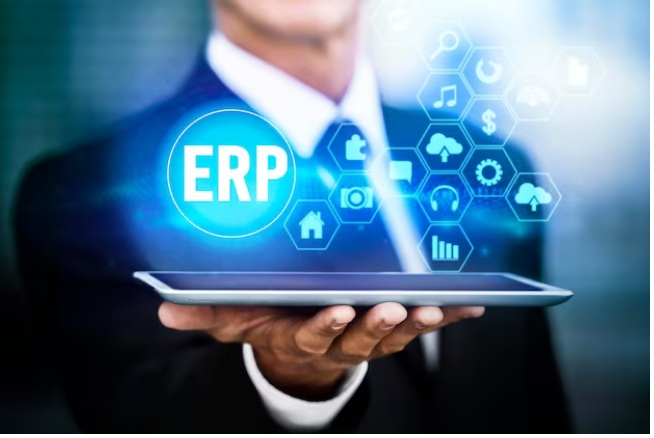In the ever-evolving landscape of business management, the transition from traditional spreadsheets to Enterprise Resource Planning (ERP) solutions marks a significant paradigm shift. This comprehensive exploration delves into the transformative role of ERP solutions, uncovering their key features, the revolution they bring to business management, and the overarching benefits of making this transition.
Understanding ERP Solutions:
ERP Defined: Enterprise Resource Planning (ERP) is a comprehensive suite of integrated business applications designed to streamline and automate processes across various departments within an organization. Unlike spreadsheets, which are often siloed and lack real-time connectivity, ERP solutions offer a unified platform that connects disparate functions, providing a holistic view of business operations.
Key Components of ERP Solutions:
-
Integrated Modules: ERP solutions typically encompass modules for finance, human resources, supply chain, customer relationship management, and more. These modules work seamlessly together, allowing data to flow effortlessly across the organization.
-
Centralized Database: ERP solutions house a centralized database that serves as a single source of truth. This ensures data consistency and accuracy, mitigating the risks associated with disparate data sources and manual data entry.
-
Automation: One of the primary benefits of ERP solutions is the automation of routine tasks. From financial transactions to inventory management, ERP systems automate processes, reducing the likelihood of errors and enhancing overall operational efficiency.
Revolutionizing Business Management:
1. Streamlined Processes: ERP solutions streamline business processes by eliminating redundancies and inefficiencies. For instance, a sales order in the CRM module can seamlessly generate corresponding entries in the inventory and finance modules, minimizing manual data entry and reducing the chance of errors.
2. Real-time Insights: Unlike static spreadsheets, ERP solutions provide real-time insights into various facets of business operations. Decision-makers can access up-to-date information on sales, inventory levels, cash flow, and more, enabling informed decision-making and strategic planning.
3. Improved Collaboration: ERP solutions foster collaboration by breaking down departmental silos. Since all modules share a common database, employees across different functions can access the same information. This interconnectedness promotes cross-functional collaboration, enhancing communication and teamwork.
4. Scalability: As businesses grow, their requirements evolve. ERP solutions are designed to scale with the organization, accommodating increased data volumes, users, and business complexities. This scalability ensures that the ERP system remains aligned with the changing needs of the business.
5. Enhanced Accuracy and Compliance: ERP solutions significantly reduce the risk of errors associated with manual data entry. Additionally, many ERP systems incorporate built-in compliance features, ensuring that business processes adhere to industry regulations and standards.
Benefits of ERP Solutions:
1. Efficiency Gains: By automating routine tasks and providing a unified platform, ERP solutions enhance operational efficiency. This, in turn, allows employees to focus on more value-added activities, fostering productivity throughout the organization.
2. Cost Savings: While the initial implementation of an ERP system may require an investment, the long-term cost savings are substantial. Automation reduces labor costs, and the streamlined processes minimize the risk of financial discrepancies that could lead to additional expenses.
3. Strategic Decision-Making: Real-time data and analytics empower decision-makers with the insights needed to make informed and strategic decisions. This proactive approach to decision-making can be a key differentiator in a competitive business environment.
4. Adaptability to Change: In today's dynamic business landscape, adaptability is crucial. ERP solutions provide the flexibility and scalability needed to adapt to changes in market conditions, business models, and organizational structures.
5. Customer Satisfaction: Improved business processes and streamlined operations facilitated by ERP solutions contribute to better customer service. Timely order fulfillment, accurate invoicing, and responsive customer support enhance overall customer satisfaction.
Key Takeaways and Benefits:
-
Streamlined Processes: ERP solutions eliminate redundancies and inefficiencies, streamlining business processes.
-
Real-time Insights: Decision-makers have access to up-to-date information, enabling informed and timely decision-making.
-
Improved Collaboration: ERP solutions break down silos, fostering cross-functional collaboration.
-
Scalability: Designed to scale with the organization, ERP solutions accommodate growth and changing business requirements.
-
Efficiency Gains: Automation and a unified platform enhance operational efficiency, allowing employees to focus on value-added activities.
-
Cost Savings: Long-term cost savings result from reduced labor costs and minimized financial discrepancies.
-
Strategic Decision-Making: Real-time data empowers decision-makers with the insights needed for strategic planning.
-
Adaptability to Change: ERP solutions provide the flexibility needed to adapt to changes in the business environment.
-
Customer Satisfaction: Improved business processes contribute to better customer service and overall customer satisfaction.
Conclusion:
In conclusion, the transition from spreadsheets to ERP solutions represents a revolution in how businesses manage their operations. The integrated nature of ERP solutions, coupled with automation and real-time insights, redefines the way organizations approach efficiency, collaboration, and decision-making.
The benefits of ERP solutions extend beyond mere operational improvements. They encompass strategic advantages, cost savings, and the ability to adapt to a rapidly changing business environment. As organizations embrace ERP solutions, they position themselves not only to survive but to thrive in an era where agility and data-driven decision-making are paramount.


No comments yet